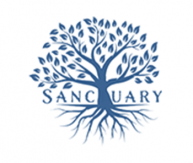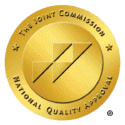Trauma is often an underlying cause of substance use disorders. Many people have unresolved trauma that causes stress, emotional health issues, and other problems. As a result, some people use drugs or alcohol to numb themselves to these issues. That is why Sanctuary Treatment Center offers trauma therapy in Los Angeles, California. We believe that resolving the underlying causes of addiction is the only way to truly recover.

What is Trauma?
Trauma is an emotional response to a distressing event or series of events. In some cases, these events are life-threatening. Other times, the events are shocking or disturbing. These events trigger a person’s “flight or fight” instinct in a situation where their actions are limited.
After that, the person becomes somewhat “frozen” in hypervigilance as they worry about a similar event. Our trauma therapy in Los Angeles, California helps individuals manage these symptoms.
Common Symptoms of Trauma
Symptoms of trauma can vary from person to person. However, most people will have some of the following symptoms in varying degrees of severity:
Trouble thinking clearly
Irritability and mood swings
Anxiety
Excessive fear or feelings of guilt
Isolating from others
Intrusive thoughts
Flashbacks
Disrupted sleep
Feeling sad or hopeless
Being “jumpy” or “on-edge”
Feeling numb or disconnected
These symptoms often cause a person to avoid anything similar to the traumatic event. As a result of avoidance, they could be depriving themselves of the quality of life that they deserve.
Types of Trauma
Not all trauma is the same. In addition, some events are traumatic for one person but not for another. Every person responds to traumatic events in their own way.
Regardless, trauma is categorized into the following three types:
Acute trauma refers to a single traumatic event. These include a car accident or the unexpected death of a loved one for example. These events are sudden, not typical and unexpected in one’s life.
Chronic trauma occurs over long periods of time. A person could live with an abusive partner. They may normalize this type of trauma, experiencing it daily. Yet, they are negatively affected by these experiences.
Complex trauma is exposure to many traumatic events over time. These could be a string of acute events or a combination of acute and chronic trauma. Like chronic trauma, people begin to feel that trauma is normal or inevitable.
Post-Traumatic Stress Disorder (PTSD)
Many people associate PTSD with combat veterans. After facing dangerous situations, many combat vets have flashbacks, feelings of guilt, anxiety, and depression as a result. When these issues are left untreated for too long, a person could develop a mental health disorder called PTSD.
While PTSD is usually associated with veterans, other people can develop this disorder. Thus, healing from traumatic events is needed for a person’s overall health and well-being. The longer trauma goes unaddressed, the more likely a person will have symptoms of a mental disorder. However, no matter how long trauma is left untreated, trauma therapy in Southern California offers hope to those who struggle.
Why is Our California Trauma Therapy Vital During Rehab?
Many people use drugs or alcohol to self-medicate for symptoms of trauma. They get temporary relief from symptoms like flashbacks, distressing memories, or excessive guilt. In addition, some people abuse substances to boost their moods due to depressive symptoms. However, self-medicating with drugs or alcohol only leads to more issues, like addiction and poor physical health.
Our Los Angeles, California trauma therapy is vital during rehab for this reason. Often, many people numb their symptoms for so long that they aren’t aware of them. After detox, their minds begin to clear. They uncover the reasons they began abusing substances. Thus, as a person heals from addiction, the underlying symptoms they were masking begin to surface.

What Does Trauma Therapy in California Look Like?
Many of our therapies can treat symptoms of trauma here in Los Angeles, CA. Most treatment programs will combine individual, group, and holistic therapies to treat trauma. Other innovative approaches can also help to treat trauma.
Overall, most rehab centers know that many of their clients have a history of trauma. Since many clients aren’t aware of this until they detox, treatment centers must consider their approaches to therapy carefully. Rehab centers often follow the principles of trauma-informed care to best serve their clients.
Cognitive-Behavioral Therapy (CBT)
Cognitive-behavioral therapy (CBT) is among the most common type of therapy. CBT treats many issues, like low self-esteem, specific phobias, anxiety, and depression. Since many of these issues also occur among those with trauma, CBT can also help with trauma-related symptoms.
Out CBT therapy in Los Angeles, CA works by addressing a person’s thoughts and beliefs that drive their behaviors. Often, those with trauma have negative beliefs about themselves and the world around them. These beliefs then cause unhealthy behaviors like avoidance and substance abuse. Therefore, by changing negative thoughts, a person can change their behaviors.
Dialectical Behavioral Therapy (DBT)
Dialectical behavioral therapy (DBT) is a type of CBT developed to treat borderline personality disorder (BPD). Some people could have symptoms similar to BPD, yet they don’t have all traits for a diagnosis. Thus, DBT can also help a person with similar symptoms, even when they don’t have BPD.
DBT addresses symptoms such as chronic trust issues, “all-or-nothing” thinking, extreme mood swings, and self-harm. Some people with trauma also have these behaviors. For instance, substance abuse can be a self-harming behavior. In short, our clients could use DBT to manage symptoms of trauma here at our Los Angeles treatment center.
EMDR
EMDR is short for “eye movement desensitization and reprocessing.” EMDR is an evidence-based treatment for trauma that uses bilateral stimulation to restore healthy brain functioning. Traumatic events can change the way a person’s brain works. Often, their minds are “stuck” looking for the next threat to their safety. Therapists can heal this damage with EMDR.
During EMDR sessions in Los Angeles, California, clients will discuss their experiences and memories with a therapist, like in other forms of therapy. However, the therapist will also engage the client in bilateral stimulation to teach their brain to remain calm while thinking about trauma. Bilateral stimulation includes repeated sensations from the right to the left side of the body. Most therapists will use eye movements, yet some can use body tapping or auditory stimulation. Regardless of the type of therapy, we believe that treating trauma and addiction at the same leads to the best outcomes for our patients.
Start Trauma Therapy in Los Angeles, California
Trauma is a common underlying issue driving addiction. Therefore, trauma therapy is a vital part of any drug and alcohol rehab center such as Sanctuary Treatment Center in Los Angeles, California. We know that many clients have trauma in their lives. That is why we are ready to help our clients resolve any trauma so that they can move forward in their recovery.
Contact us today to learn more about trauma-informed care.
All Services
- Acceptance and Commitment Therapy in Los Angeles, CA
- Group Therapy in Los Angeles, CA
- Individual Therapy Program in Los Angeles, California
- TMS Therapy in Los Angeles, California
- Neurofeedback Therapy in Los Angeles, CA
- Holistic Rehab in Los Angeles, California
- Trauma Therapy in Los Angeles, California
- Family Therapy for Addiction in Los Angeles, CA
- Cognitive Behavioral Therapy – CBT – in Los Angeles, California
- DBT Therapy in Los Angeles, CA
- EMDR Therapy in Los Angeles, CA

We Take Insurance!
Sanctuary Treatment Center accepts most private PPO insurance plans, as well as some private HMO plans. Through private insurance plans, individuals and families can access high quality addiction treatment services. If you have questions regarding insurances, please give us a call.

Copyright © 2022 Sanctuary Treatment Center.
